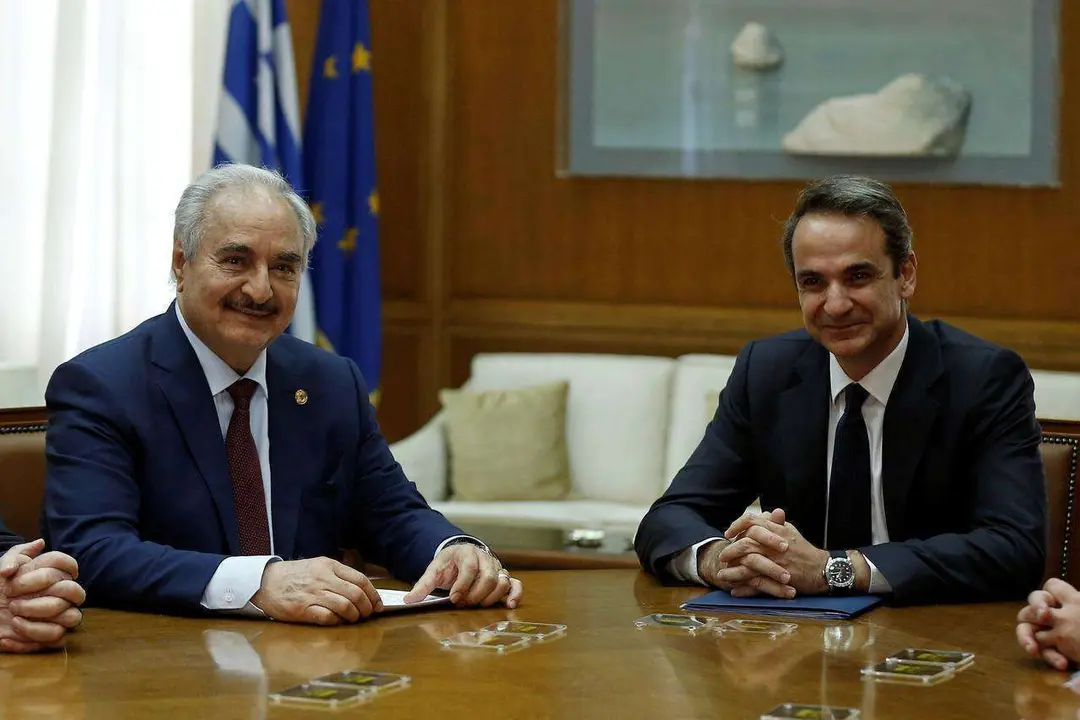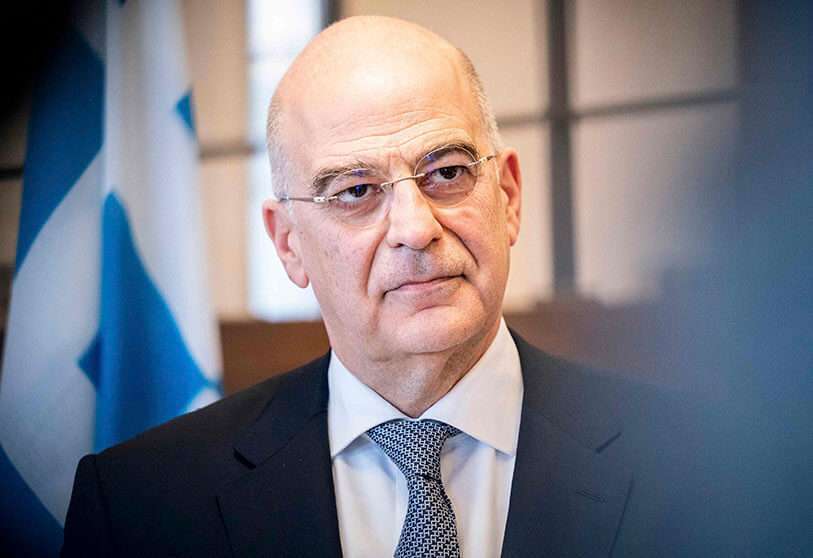Greece strengthens its alliance with the Libyan House of Representatives through the opening of a consulate in Benghazi

The history of the conflict in Libya changed completely last November after Turkey signed a maritime agreement with the National Accord Government. Control over resources has turned the conflict raging in the region into an open war over who gets the power of the much prized black gold and some of the strategic routes across the Mediterranean. The authorities in the east of the country led by Marshal Haftar are supported by Jordan, Saudi Arabia, Egypt, the United Arab Emirates, Sudan, Russia and France; while the government of Tripoli, backed by the Muslim Brothers and internationally recognized by the United Nations or Italy, receives military aid from Turkey and Qatar. In this complex scenario, the Greek Foreign Minister, Nikos Dendias, has held a meeting with the Speaker of the Libyan House of Representatives, Aguila Saleh, to request the "withdrawal of all foreign forces from the country in order to achieve peace and stability".
During their meeting Greece highlighted its participation in the Irini operation and stated that it was "ready to help further". The main objective of this initiative is to implement the arms embargo imposed by the United Nations on Libya through air, satellite and maritime resources. The dialectic war between Athens and Ankara was also highlighted at the meeting, where the Greek minister accused Turkey of "having historical responsibilities for what is happening in the North African nation". "The sending of Syrian mercenaries to Libya and the violation of the arms embargo are two elements that are part of the Turkish position," they explained in an official statement.
However, Greek-Libyan relations have played a major role in this meeting. "We reached an agreement on the possibility of a Greek consulate operating in Benghazi, which would facilitate commercial transactions. Libya wants to replace Turkish products with other products from Europe and especially from Greece," they announced.

On the other hand, both leaders have expressed their intention to delimit the maritime zones between the two nations, "not in the area of illegality as is the case of the so-called Sarraj-Turkey memorandum, but within the framework of international law," they said. In conclusion the Greek minister transmitted to the Speaker of the Libyan House of Representatives the decision taken by the President of the Greek Parliament to "reactivate the Greece-Libya Friendship Committee". Mr Dendias also stressed the need to resolve the Libyan crisis via the Berlin process.
The UN Secretary General held a telephone conversation this week with Marshal Haftar to discuss the latest developments in Libya. The UN chief reaffirmed the full commitment of the United Nations to dialogue to achieve peace in the framework of the Libyan Joint Military Commission 5+5.
After the increase in tension between Turkey and some members of the European Union - such as Greece or France - it has reached the European Parliament. The main leaders of the Old Continent will examine the estrangement between Ankara and NATO, as well as Ankara's interventions in the conflict in Libya. Within the framework of the agreement signed in November between the NAG and the Eurasian nation, the country presided over by Erdogan has intensified its presence in Libya, sending hundreds of mercenaries and dozens of shipments of military material and in order to increase its presence in the Eastern Mediterranean and have direct access to the country's oil fields. This agreement has further poisoned the waters of the Mediterranean and has opened a new wound in the diplomatic relations of this state with countries such as Greece, Cyprus or Egypt, who in recent months have repeatedly denounced "the illegal activities" of Turkey in the area.








